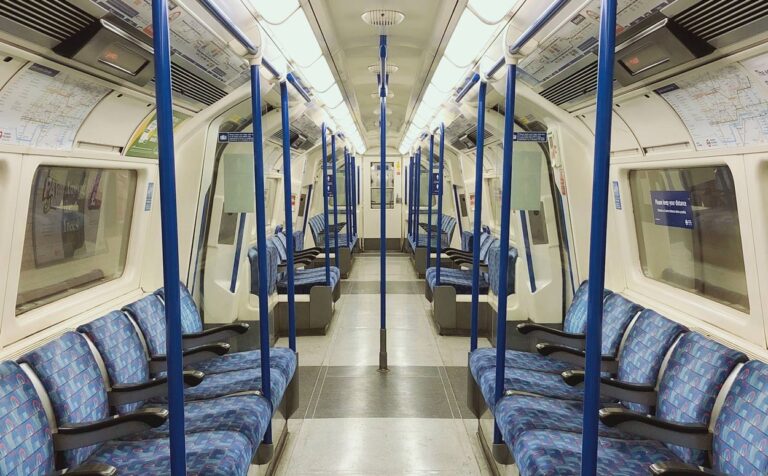Transport fares are draining England’s pockets. Why does the government refuse to act?
At the very beginning of September 2022, government officials in Spain offered residents free travel for train journeys under 300 kilometres (186 miles)—as part of an initiative paid for by a government subsidy worth €221 million (£297 million)—in a bid to combat inflation and the cost of living crisis in the wake of Russia’s invasion of Ukraine.
Similarly, from June up until September, Germany offered all-you-can-ride monthly rail tickets for just €9. This initiative was also paid for by a €2.5 billion (£2.2 billion) government subsidy and was, as you can imagine, widely popular with riders.
In July, I took a weekend trip to Berlin where I spent a third of my time station-tapping in and out of Alexanderplatz. It wasn’t until I landed at London Stansted Airport that I remembered just how costly public transport in England is. Daylight robbery, honestly.
Data published in the National Travel Survey: 2021 revealed that the average person in England makes 15 trips per week. For Londoners, more specifically, among the millions of people who have begun regularly using public transport once again following the COVID-19 pandemic’s lull, the average trip now costs between £7.70 to £14 daily—depending on the zones—following the TFL ticket fare increase in March.
But wait a second. If Germany, which has a higher population, and Spain are able to provide residents with humanitarian aid during these ‘uncertain times’, then why can’t the UK follow suit and give those in the capital the same support?
Dr Rachel Aldred, academic and transport expert at the University of Westminster, spoke to SCREENSHOT about the ins and outs of the situation. “While the Spanish scheme particularly benefits commuters living in large urban areas—because they are nationally-led—it’s very difficult for cities that have to act alone on this, especially in the current financial context. However, given that the TFL recently secured its sixth and final government bailout of £3.6 billion, I question why a similar scheme couldn’t be included as part of the negotiations,” she first highlighted.
“Much of the urban UK lacks the suburban tram and metro based systems that some similar size European cities and towns have, which means that, in the short term, it is more important than in other contexts,” Dr Aldred added.
In agreement, transport commentator and train expert Christian Wolmar believes that the reason why we haven’t yet introduced a similar scheme comes down to a lack of political will—but even if there were one, the complexities of the country’s railways would make it difficult due to privatisation.
“It’s all about the concept of elasticity. If you reduce fares by one pound, then you would get more than one pound in revenue because more people will buy those fares, but far too often, our Treasury believes that they’ll get less than one pound in revenue by offering a reduction,” Wolmar explained.
“Giving some of this lost money back, as well as incentivising the use of more sustainable travel models by reducing public transport costs can ensure that spending in other areas holds up better—therefore helping support other areas of the economy,” echoed Dr Aldred.
For context, almost three decades ago, the Conservative party—under John Major’s hand—privatised Britain’s railways and buses. Some argue that this led to private operators being held unaccountable to democratic processes Britain vows to upkeep and that it continues to severely impact people’s lives, rights and funds. When we say ‘people’s lives’, it’s not hard to guess why the working class is the one most affected.
In April, Scotland’s railway reverted back to public ownership after being nationalised, and just this month, First Minister Nicola Sturgeon announced that rail fares on ScotRail would be frozen until at least March 2023, as she plans to deal with the “humanitarian emergency” caused by soaring energy bills. So, if Germany, Spain and Scotland can all do it, why is England refusing to follow suit?
According to Wolmar, the UK railways are heading into a perfect storm, so now is the time to nationalise them. In his expert opinion, it all comes down to a judgement call, one that could easily be taken. In fact, London has seen it done before.
According to Buses Magazine—the UK’s most premier transport publication covering all things bus and coach related—in 1981, the Labour leadership, under Mayor Ken Livingstone, introduced the ‘Fares Fair’ public policy. The scheme divided Greater London Council (GLC) into four zones and introduced very low fares, for example, a 10 pence short hop fare return or a journey within the same zone for 20 pence.
Unfortunately, the scheme was disliked by the Conservative party, especially Bromley Council leader Dennis Barkway, resulting in the GLC being taken to court. In the first instance, the local government administrative body won, however, the court of appeal ultimately overturned the landmark decision and in November 1981, the policy was deemed illegal and put a stop to—flattening the prospect of more reasonably-priced fares.
Some say that Livingstone was the primary reason for Margaret Thatcher’s subsequent abolition of the GLC. Nevertheless, it’s not hard to guess why the scheme had proven to be so popular among Londoners.
In short, the idea that Britain could offer residents a similar short-term scheme is not a ludicrous request, but rather one that the government sees as non-optional due to the alleged lack of economic benefits it represents.
Both throughout history and in the present, privatisation has often been the collective solution championed by the Tories. In this case, however, it might be worth considering re-evaluating its original objectives—the primary of those being, advocating modernisation while keeping people’s pockets in mind.





